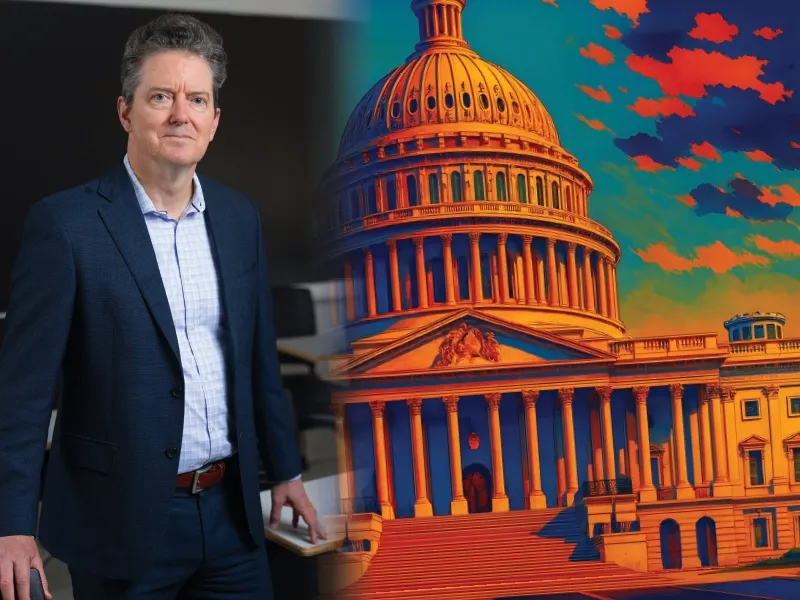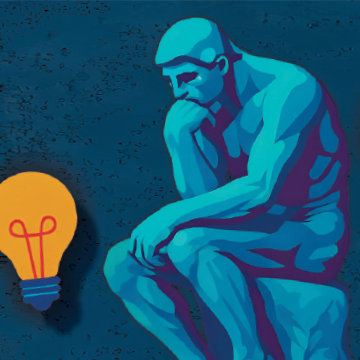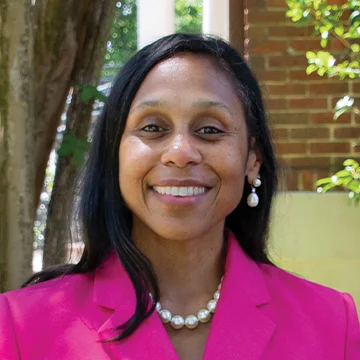
Douglas N. Harris, Schlieder Foundation Chair in Public Education, Chair and Professor, Economics
Originally published in the 2025 issue of the School of Liberal Arts Magazine
A few years ago, I started to get worried about where we are headed as a country. Misinformation, distrust, anger, and polarization were — and remain — pervasive. I wanted to do something. So, I started to ask, how are we really doing? Is the nation’s bad mood really justified? If so, how and why?
To answer these questions, I asked some of the nation’s leading scholars, drawn from a wide variety of disciplines and political orientations, to help scour the data for the best measures. Funded by Tulane’s School of Liberal Arts and the Murphy Institute, our group includes scholars in Economics, History, Medicine, Political Science, Psychology, and Sociology, and appointees or advisors to the last five presidential administrations, including Biden and Trump. We also polled a representative sample of the American people.
We first had to agree what measures were important enough to study. In the beginning, some in our group thought we would not agree on much, but they were surprised. We ended up with supermajority support (75 percent or more) for 37 measures across 15 topics. The public also had supermajority support for about half of those measures and more than 60 percent for most of the rest.
From this remarkable level of agreement, we created a progress report called the State of the Nation Project. It is like the report cards we give Tulane students, but here we consider everything from the economy and environment to life satisfaction and mental health.
So, what is the state of the union? The results are surprising in some ways. Perhaps that’s why the report received national attention when it came out last spring.
First, the good news. The economy is strong and poised for success. If you listen to the media these days, this might surprise you. But the United States has a long history and culture of innovation, relatively free and open markets, and a strong and growing workforce.
Our workers are also skilled. Large numbers of young people still go to Tulane and other colleges. Many others are gaining valuable work experience from their jobs. The test scores of our children — a marker of their long-term productivity — have been somewhat middling overall for decades. But, our international test score standing has been steady, even improving the last few years. We can and should do more to improve achievement, but this is not the crisis that we see in many other measures.
Another bit of good news is that more measures are improving than declining. For example, while we are still one of the most violent higher-income nations, violence has dropped by half since the early 1990s.
The bad news is that we are a nation of extremes. In contrast to our very strong economic performance, we are in the bottom half of higher-income countries in terms of citizenship and democracy, inequality, mental health, and trust (as well as violence, despite our recent improvement). We are also among the worst countries on greenhouse gas emissions, income inequality, poverty, suicide, and — a statistic that surprised me — in our belief in democracy. We might reflect on the paradox of the world’s oldest continuous democracy having one of the weakest collective beliefs in democracy.
There are of course many other elements to the State of the Nation findings, and I encourage you to check them out on our website (QR code below). But I want to reflect on how this research mirrors debates over the liberal arts themselves. How we should understand the sometimes contradictory findings I’ve indicated.
Some of these results may help us explain our current political environment. Whether you support President Trump or not, you might wonder, how did someone so critical of institutions get elected to lead the largest and most powerful institution of all? Part of the answer seems to be our collective disgruntlement with our lives and institutions — much of which preceded his election. The president’s aggression toward higher education, for example, would be no surprise given the crisis of public trust we observe. Even among those who oppose his actions have to take seriously the underlying concerns that enable them.
We could not have come up with a sensible notion of the state of the nation without the liberal arts to help us understand the full and complex range of the human experience, but the real potential of the liberal arts comes in the next steps. We now have to ask, why are we struggling so mightily? And what can we do about it? These questions will take all the liberal arts has to muster — curiosity about the world around us, critical thinking, and even advanced statistical analysis — to take on these heady questions. But answer them we must.
70% … the percentage of countries the US outperforms on CURRENT LIFE SATISFACTION.
66% … the percentage of countries the US outperforms on trust in police.
33% … the percentage of countries the US outperforms on BELIEF IN DEMOCRACY.
98% … the percentage of countries the US outperforms on ECONOMIC OUTPUT.
We could not have come up with a sensible notion of the state of the nation without the liberal arts to help us understand the full and complex range of the human experience.
Douglas N. Harris is a professor and chair of the Department of Economics, the Schlieder Foundation Chair in Public Education, and the director of both the Education Research Alliance for New Orleans (ERA-New Orleans) and the National Center for Research on Education Access and Choice (REACH), all at Tulane University. Harris was recently named named the 2025 recipient of the Association for Public Policy Analysis Management’s (APPAM) Policy Field Distinguished Contribution Award, recognizing sustained, field-shaping contributions to public policy analysis and management. In 2023, he received several grants to support a three-year research project to study charter schools at the national level.




